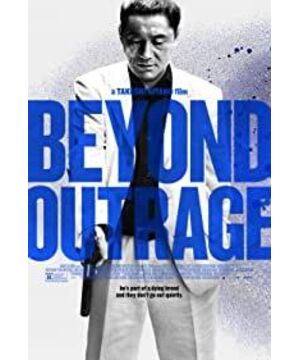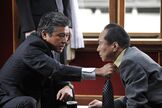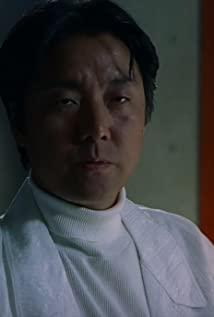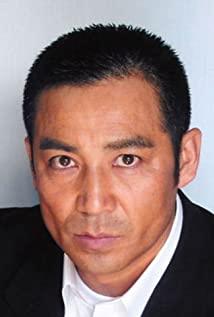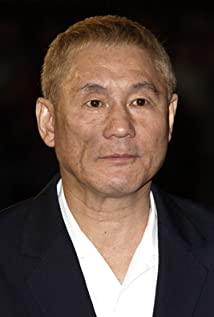In 2010's "Extremely Wicked", Kitano not only did not get rid of the controversy over the direction of his works caused by the previous "director trilogy", but intensified. The explanation given by Takeshi Kitano at the time was just "because he wanted to make violent films", and of course he was also influenced by public opinion, thinking that he should make some movies that everyone likes to watch. However, this so-called "return to violence" is no longer like his earlier violent films. A large number of cannonball lines and earth-shattering gunfire seem to announce the birth of Kitano Takeshi's "new violence". In the film, there are no longer "cute" characters who "have tigers in their hearts" but "sniff roses", and even half of women can't be seen, a world that is completely villainous. Murder is arbitrary, almost a "underworld utopia".
Controversy is controversial, Kitano's first sequel film still received great attention, and was shortlisted for the main competition unit of the 69th Venice Film Festival. Except for the slightly longer foreshadowing and the "meat grinder" being fully turned on in the second half of the film, "Extremely Wicked 2" has completely continued the style of the previous work. One second is superfluous, and the language of the camera is steady and sharp. These all reflect the level of Kitano Takeshi as a world-class director, but when you try to find the meaning in the film, you are at a loss. Just like the "Otomo" played by Takeshi Kitano in the film, he was released from prison, turned over, and took revenge. He will "clean up" all those who are in danger to him, find out the truth, find the most treacherous person, and kill him. . But then. If you think about it a little more, is he trying to explain his new worldview: all villains.
I have to mention that every Japanese director is telling the world "what is Japan" with movies, and Takeshi Kitano is no exception. The violent scenes in the film have surprised the audience many times, and the way of hurting and killing people is probably beyond the general understanding of ordinary Western audiences. An interesting example is that the boss played by Miura Yukazu was forced to retire in the film. The retirement book wrote: I will live like an ordinary person from now on and contribute my strength to the society. A man who has been the boss of the underworld for most of his life can't help laughing when he says such a thing, presumably this is also a norm, and no matter how this kind of boss usually retires, he will not live long, to some extent. It is said that even a special, relatively closed and independent group such as the underworld will still follow the rules of the big society. I am afraid that "anarchism" is really difficult to establish in Japan. This is the uniqueness of Japan and the fascinating part of Japanese culture.
But looking back, we can't conclude that Takeshi Kitano "betrayed" himself, and even the subtle and unexpected ending of "The Wicked 2" can remind people of "Zatoichi" in 2003. After all, people's three views vary with age. Change is the law of nature, and it is understandable for the director to show this change in his works, but we really can't understand how this 64-year-old casual and persistent old Capricorn man is thinking about the next step.
View more about Beyond Outrage reviews


